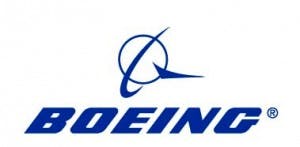
When the quarter began in January, things did not look good for the aerospace company. The Dreamliner 787 suffered from battery problems, causing flights to be grounded, a halt in production, a slowdown in sales, defense industry sequestration spending cuts kicked in, and investors jumped ship. But in spite of all of that, Boeing reported first quarter earnings that should keep investors happy.
The Boeing Dreamliner 787 was cleared for flight again last week by the FAA. After the news was announced, shares rose 2%. Despite The Boeing Company (NYSE:BA)’s problems with the Dreamliner, shares have risen 14% since Jan. 2- a nice payoff for investors who stayed for the long run and didn’t abandon ship.
The Boeing Company (NYSE:BA) Commercial Airplanes first-quarter revenue decreased to $10.7 billion on delivery mix and lower services revenue. Commercial Airplane earnings increased 13% to $1.2 billion, up from $1.08 billion in 2012. During the first quarter, Commercial Airplanes delivered the first 777 aircraft produced at a record production rate of 8.3-per-month. In April, Commercial Airplanes delivered the first 737 produced at a record production rate of 38-per-month. The division booked 209 net orders during the quarter. Backlog remains strong with more than 4,400 airplanes valued at a record $324 billion.
However, the long term effect of the Dreamliner grounding is not yet known. The company did not release a price tag on how much the repairs, retooling, and crisis control cost, not to mention the potential cost of marketing the safety of the jet to future passengers. The grounding also halted new Dreamliner deliveries, delaying hundreds of millions of dollars in revenue.
The Boeing Company (NYSE:BA)’s defense division did not suffer from sequestration as feared. Boeing Defense, Space & Security’s (BDS) first-quarter earnings were $832 million, up 12% from $742 million in 2012.
The Boeing Company (NYSE:BA) Military Aircraft first-quarter revenue was $4.1 billion. Net earnings were $430 million, up 8% from $399 million the year previous.
Boeing competitor Lockheed Martin Corporation (NYSE:LMT) also feared sequestration impact, but produced a 14% increase in net income instead. Net income from continuing operations rose to $761 million, or $2.33 a share, from $668 million a year earlier.
President Marillyn Hewson warned, “While the impact of sequestration on our business has been limited to date, we continue to work closely with our customers to better understand the future impact sequestration may have on our programs.”
The aerospace and defense contractor suggested the federal budget cuts could reduce 2013 sales by $825 million.
Even though earnings rose, revenue fell 2% to $11 billion. Sales rose in several divisions, but the aeronautics division sales dropped 14%, due to fewer deliveries of F-16 jets and C-130 transport planes- the same division where The Boeing Company (NYSE:BA)increased earnings 8%.
Lockheed Martin and Northrop Grumman Corporation (NYSE:NOC) have rallied in recent weeks. A Bloomberg index of the top 10 defense contractors has gained 5.3 percent since sequestration spending cuts began March 1, compared with a 1.5 percent increase in the Standard & Poor’s 500 Index over the same period.
Northrop Grumman first-quarter earnings fell 3.4%. Reported net earnings of $489 million, were down from $506 million the same quarter the year previous.
Revenue declined to $6.1 billion from $6.2 billion a year ago. The aerospace division increased 4% in sales. However, revenue decreased 1.5% to $6.1 billion in the information systems and technical services segments, offsetting growth at its aerospace systems unit. Electronics systems sales were essentially flat.
The total backlog at the end of the quarter was $39.4 billion, compared with $40.8 billion in the previous quarter, and includes awards of $4.7 billion during the first quarter of 2013. The company indicated that the backlog was “due to customer response to the current U.S. government budget environment,” a strong nod to the sequester.
Northrop Grumman CEO and Chairman Wes Bush called the future an, “uncertain and constrained budget environment.”
While no one defense and aeronautics company has truly shown the effects of sequestration yet, each of the companies is aware of potential repercussions, and has warned investors, and tightened belts. It is not yet known how significant the defense industry cuts will be, however, they are not going to be as frightful as the originally feared $500 billion loss.
For now, each of these defense industry contractors are still great investments. They have each shown the ability to act and operate smart seeing pending difficulties. The diversified nature of the different divisions within the competitors helps as well, so that no one major federal cutback can’t be overcome in other divisions.
The article Did Sequestration and the Dreamliner Hurt Boeing Earnings? originally appeared on Fool.com.
Copyright © 1995 – 2013 The Motley Fool, LLC. All rights reserved. The Motley Fool has a disclosure policy.


